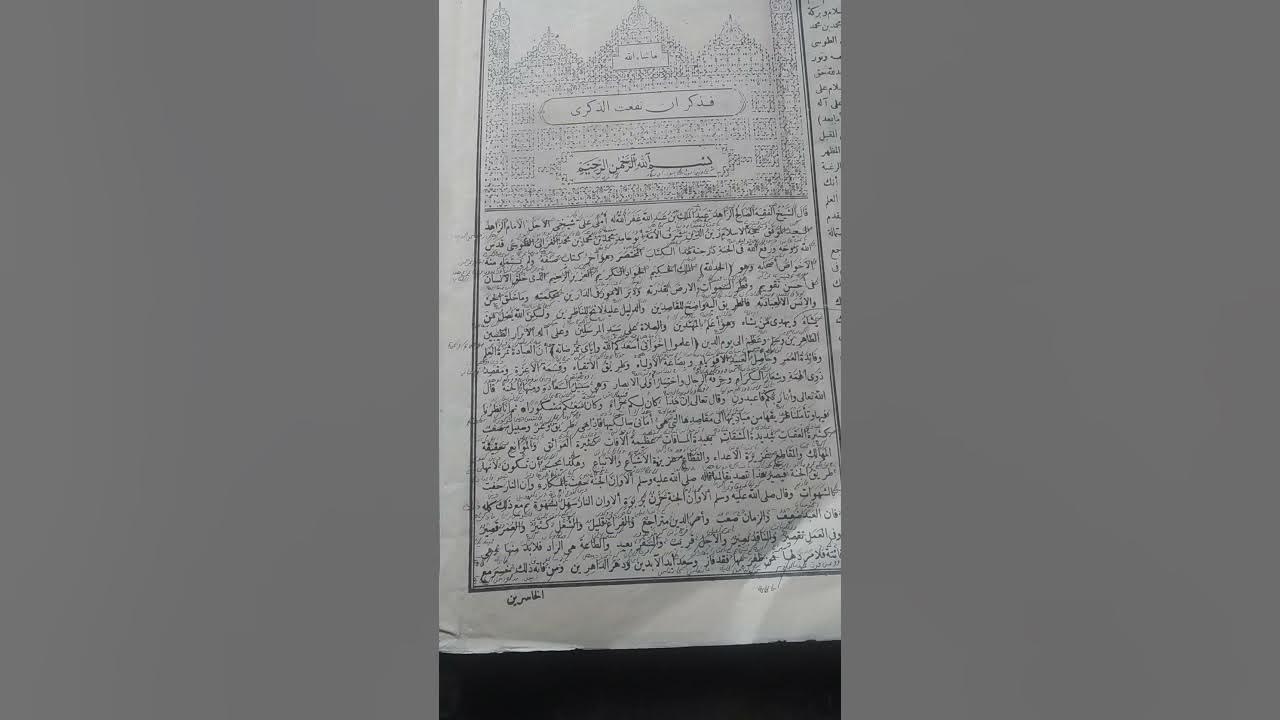NIATNA THOLABIL ILMI,CERAMAH BAHASA SUNDA
Summary
TLDRThe transcript features a deeply spiritual and cultural conversation, blending Islamic prayers, personal reflections, and discussions on seeking knowledge, gratitude, and faith. It includes references to significant religious figures, teachings, and rituals, while weaving in a series of personal anecdotes, expressions of devotion, and a sense of community. The dialogue touches upon themes of sincerity, piety, and the importance of faith in daily life, providing a rich perspective on Islamic practices and reflections on life’s challenges and blessings.
Takeaways
- 😀 The script emphasizes the importance of seeking knowledge and the value of learning in Islam.
- 😀 It discusses the significance of intentions (niyyah) in acquiring knowledge, particularly with the purpose of serving others.
- 😀 Several Islamic figures and references, such as Prophet Muhammad and the companions, are mentioned to highlight the significance of education and righteous deeds.
- 😀 The concept of worship (ibadah) and the need to maintain sincerity in religious practices is emphasized.
- 😀 The script touches on the concept of humility, urging individuals to avoid arrogance and the pursuit of material wealth.
- 😀 There is a call for gratitude (syukur) to Allah for the blessings one has, with a reminder of the importance of being thankful in all circumstances.
- 😀 It encourages communal prayer (Shalat Jemaah) and gathering for religious activities as a means of strengthening the faith.
- 😀 The script highlights the impact of good character and manners in Islam, stressing the importance of being respectful and humble.
- 😀 Islamic teachings related to proper conduct, including maintaining honesty and avoiding backbiting, are referenced.
- 😀 The script stresses the need for perseverance and faith in facing life's challenges, with a focus on trust in Allah's plan.
Q & A
What is the primary theme of the script?
-The primary theme of the script revolves around religious reflection, praise, prayers, and the importance of seeking knowledge in Islam. There are references to teachings from the Prophet Muhammad and the significance of faith and practice in daily life.
What is the significance of 'thalabul ilm' in the script?
-'Thalabul ilm' refers to the pursuit of knowledge, a key concept in Islamic teachings. The script emphasizes the importance of seeking knowledge and the role it plays in spiritual growth and fulfilling one's duties as a Muslim.
What role does gratitude (shukr) play in the script?
-Gratitude (shukr) is a central theme in the script, where it is expressed as an essential practice in Islam. The script highlights the importance of being thankful for God's blessings and acknowledges that true success is rooted in gratitude.
How does the script connect the idea of 'iman' (faith) with actions?
-The script stresses that iman (faith) should be reflected in one's actions, particularly through religious practices like prayer and acts of charity. Faith and deeds are presented as interconnected, with a person's internal belief manifesting through external actions.
What is the significance of the references to the Prophet Muhammad in the script?
-The references to the Prophet Muhammad, along with the recitations of salutations (salawat), are meant to honor the Prophet and remind the audience of his teachings. This reflects the Islamic tradition of invoking blessings upon the Prophet as an act of reverence.
What is the purpose of mentioning Islamic rituals like wudhu (ablution) and prayer in the script?
-The mentions of wudhu (ablution) and prayer serve to reinforce the importance of these rituals in the daily life of a Muslim. They are depicted as essential practices that purify the body and soul and are integral to maintaining a strong connection with God.
How does the script address the concept of 'sabar' (patience)?
-The script indirectly alludes to the concept of 'sabar' (patience) by discussing the challenges faced by individuals and the importance of remaining steadfast in the face of adversity. Patience is seen as a virtue that strengthens a person's faith.
What does the script suggest about the role of community (jamaah) in Islamic practice?
-The script highlights the importance of community (jamaah) in Islamic practice, emphasizing collective worship and mutual support among Muslims. It suggests that performing acts of worship together, such as prayer, strengthens the bond within the Muslim community.
What is the script's perspective on the relationship between wealth and spiritual well-being?
-The script touches upon the idea that wealth should be used in accordance with Islamic principles, emphasizing charity and the obligation to share one's wealth for the betterment of others. It also suggests that material wealth should not overshadow one's spiritual well-being.
What are the references to 'ilm' (knowledge) in the script meant to convey?
-The references to 'ilm' (knowledge) in the script are meant to convey that acquiring knowledge is a noble and essential endeavor in Islam. The script emphasizes that knowledge should be sought with sincerity and humility, as it is a means to grow in faith and contribute to society.
Outlines

This section is available to paid users only. Please upgrade to access this part.
Upgrade NowMindmap

This section is available to paid users only. Please upgrade to access this part.
Upgrade NowKeywords

This section is available to paid users only. Please upgrade to access this part.
Upgrade NowHighlights

This section is available to paid users only. Please upgrade to access this part.
Upgrade NowTranscripts

This section is available to paid users only. Please upgrade to access this part.
Upgrade NowBrowse More Related Video

PANDUAN SHOLAT DHUHA 4 RAKAAT LENGKAP DOA SETELAH SHOLAT DHUHA

nembel minhajul Abidin 1. Mugi Istiqomah

Titik Terang Movie

Juara 1 Pidato Bahasa Arab PORSENI JATIM | Mecca Permata Amalia

Panduan Terlengkap Dzikir dan Doa Sesudah Sholat dengan Teks Arab dan Latin

Swarajyarakshak Sambhaji Ep 130 Indian Historical Marathi TV Serial Dr. Amol Kolhe - Zee Marathi
5.0 / 5 (0 votes)